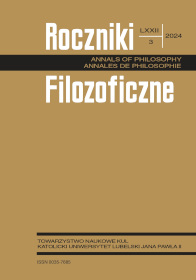
We kindly inform you that, as long as the subject affiliation of our 300.000+ articles is in progress, you might get unsufficient or no results on your third level or second level search. In this case, please broaden your search criteria.

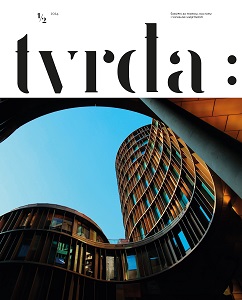
Dana 19. rujna 2023. godine, nakon mukotrpne borbe s Parkinsonovom bolešću, ugasio se život Giannija Vattima, filozofa koji je bitno obilježio talijanski filozofski krajolik druge polovice 20. stoljeća.
More...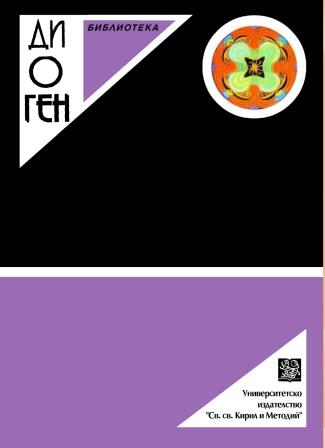
This article introduces Edmund Husserl’s idea of formal axiology. Husserl’s critique of Brentano’s value subjectivity. Husserl’s arguments for the objectivity of values.
More...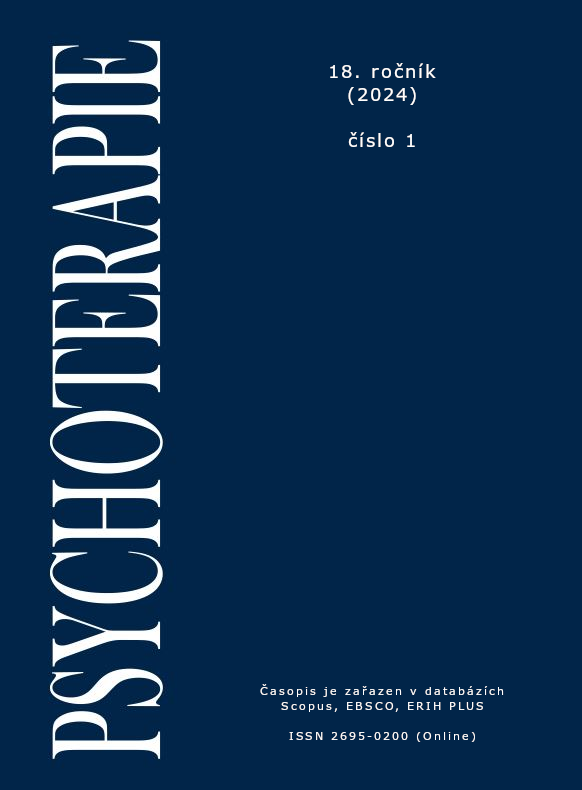
When the philosophical roots of Gestalt Therapy are discussed, names like Kierkegaard, Husserl, Buber or Sartre are often mentioned. French philosopher Maurice Merleau - Ponty, who was left standing in the background, but experienced in Gestalt Psychology, i ntroduced the body into philosophical discourse and, underlining human perception, directed himself to the original epistemological and ontological philosophy of man in the world. Although he had not encountered Gestalt Therapy in person, his ideas corresp ond with it significantly, especially in terms of contemporary field theory. Concepts like perceptual faith, corporeality and motor intentionally are examples. We are able to find parallels between the work of Merleau - Ponty and gestalt modality not only in theory but in the lived experience of therapists, too. Moreover, these parallels can enrich the set of psychotherapy methods. The affinity between this French thinker and Gestalt therapy poses the question to us whether or not he deserves to be moved into its foreground.
More...
A particular crisis of mythological consciousness defined by us as a “horror crisis” is being considered. Its essence is developing a specific “horror worldview”: “Love destroys; ethics does not save; the Universe is devious, and man is guilty.” Having clearly manifested itself as heterogeneous, but typologically identical narratives in the early 18th century, the horror crisis could still be observed for approximately a century and a half. Such narratives include “black folkloric accounts,” vampire stories, and a number of literary texts. The term “phenomenological formula of freedom” denoting a phenomenologically observed sensation is introduced: “The Universe has a good essence, and one can be in league with it; the ability to be in league with the essence, in league with the real things, is freedom, because man is also real.” The horror worldview was shaped palliatively – in search of salvation – by the mythological consciousness attempting to elaborate its stepwise “hypothesis” that the Universe has no good essence. The mythological consciousness implicitly resorted to the thesis: “If the Universe is void of a good essence, then it is supposed to have at least a mystery, albeit a horrible one; yet where there is a mystery, there is hope for abolition of evil.” The horror worldview is a relatively recent result of a “diametrical” structural distortion of the two truly ancient mythologemes: apocatastasis and katabasis. If the mythological consciousness is not oppressed by fear, it identifies the horror worldview as false and readjusts it. In fact, ethicizing harmonization of the Universe by means of a noetic creative act the result of which is perceived as a catharsis is one of its basic functions.
More...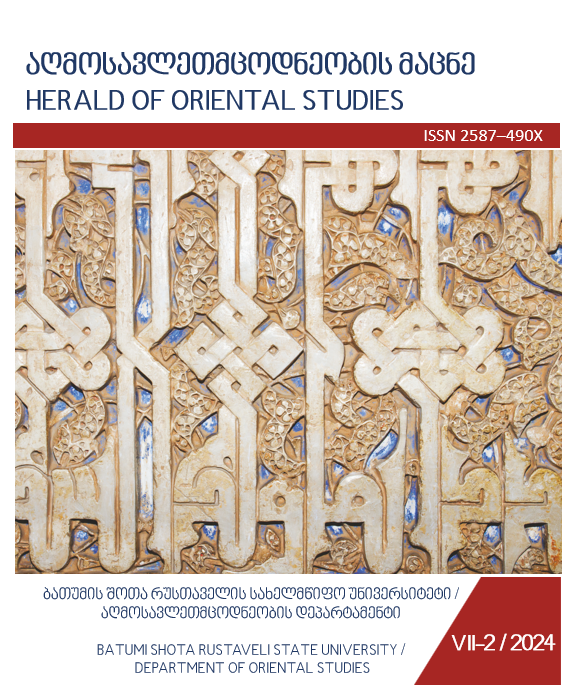
The present paper deals with the analysis of a worldview concept of the modern Georgian philosopher Konstantine Kapaneli in relation to issues of ontological, axiological and social perception of culture, in particular, the essence of the organotropic principle of the philosophical and sociological theory of culture and conceptual arguments in favour of the organotropic understanding of culture, both European and Oriental. The work clearly shows that ideological reflection on the essential certainty of historical types of culture in Kapaneli’s philosophical research is carried out through such a basic problem of traditional cultural theory as: the mode of existence of culture, the main aspects of its genesis and development, the features of its structural state and morphological systems; in addition, on the one hand, the relationship between nature, man and culture and, on the other hand, history, culture and civilization.The work defines, analyzes and emphasizes Kapaneli's point of view on the issues of mutual influence of culture and society, in particular, the impact of factors of social stability on culture as a certain system of values, social norms of social functioning and trends in cultural development.The work represents an active attempt to substantiate that Kapaneli’s organotropic theory, recognizing the continuous connection between the evolutionary change of a certain type of culture and the dynamics of social processes, has made a very significant, effective and valuable contribution to the history of philosophical thought in the process of creating a unified theory of culture.
More...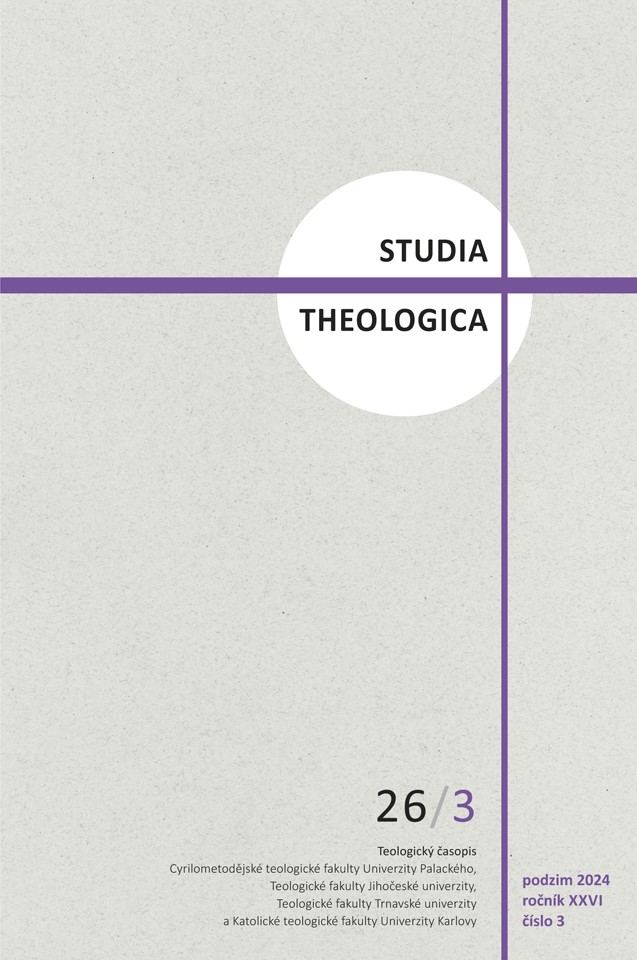
The article connects some findings of empirical sciences (especially psychology and psychiatry) with the teachings of Thomas Aquinas in the field of character formation, in a broader context of the limits of human freedom. Some human behavioural and psychological anomalies have genetic and other biological causes. In this case, a disorder on the biological level accidentally becomes part of our individual nature. However, such a disorder goes against specific human nature, that is, against man as such, and therefore brings about a decay in genuine human goodness. According to Thomas Aquinas, even a person with such a disorder can experience flourishing if, in the struggle with his corrupt inclinations, he develops virtues that are opposed to his disordered tendencies. In this manner, and with the help of God’s grace, he also gains effective control over himself and can achieve true human happiness.
More...
This paper analyses the concept of “divine property” in the context of the works of Yeda’yah ha Penini, a Jewish Aristotelian and Averroist philosopher living at the turn of the fourteenth century in southern France. Specific property in Aristotelian philosophical terminology refers to property shared by one species. In medical and mystical literature, it means a specific property of an unusual nature that is difficult to perceive by the senses. I demonstrate that three original concepts of specific properties can be found in Yeda’yah’s conception: (1) a specific property that accounts for individual differences between individuals, (2) a specific intellectual property that is shared by a small group of intellectually gifted ones, and finally (3) a specific divine property that is a power which God places into things. I point out that he connects it to a teleological structure which helps to understand the emergence of new life out of inanimate matter.
More...
The study provides an analysis of Comenius’ concept of both heat and cold, as developed especially in his writings Physicae ad lumen divinu reformandae synopsis and Disquisitiones de caloris et frigoris natura. Because of its programmatically mosaic approach, Comenius’ physics is compared directly to that of his later admirer G. W. Leibniz, and, via Leibniz’ concept, sets it into the context of later thermodynamics. Comenius’ methodology is compared not only to that of Leibniz himself, but also to that of Newton and other commonly accepted proponents of exact science. Last but not least, Comenius’ “kinetic theory of cold” is placed in opposition to the ‘privative’ concept of Aristotle, against which, however, Comenius intentionally set himself apart with his mosaic approach. Despite its several shortcomings, Comenius’ peculiar attempt to merge physics with theology is evaluated as being scientifically useful.
More...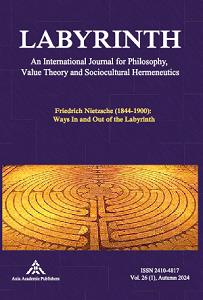
The motif of reading is placed at the center of Ecce Homo as both a vital problem and a practice in action. Nietzsche undertakes to reread every one of his "so good books" except the one he is currently writing, placing his reader in a position identical to his own. Faced with this ultimate Nietzschean "Library of Babel," the reader will have to re-experience for himself what it means to read his works, and assess his own reading biases in light of the ascending or declining values associated with the text. Rarely noticed by its best commentators, Ecce Homo's "abysmal" mirrored reading device is also that of a labyrinth, haunted by the figures of Ariane and Dionysus, and its singular composition combines the doctrine of eternal return with the selective experiment of reading.
More...
In Nietzsche's "mature" texts, we are witnessing a complete dissolution of the subject. At first glance, however, this appears highly paradoxical (Wotling 2015), leading some commentators to suggest that there is a real contradiction in Nietzsche's work (Gardner 2009), insofar as the author never ceases to speak of himself and at the same time invites his reader to become who he is. Are we to understand, then, that any self is illusory and constitutes a metaphysical illusion, i.e., that the becoming in which we are always caught according to Nietzsche must make any position of a self impossible, and at the very least diminishing? Following in the footsteps of Alexander Nehamas (1985), we believe that we can overcome the contradiction identified by S. Gardner by showing that Nietzsche's conception of the self is not "realistic", but precisely also fictional and dynamically positive at the same time.
More...
The notion of poethics has been used to approach the way in which forms of language and forms of life are interdependent and to reveal the ethical dimension of poetics. However, the interaction must go both ways; there must not only be an ethical dimension to poetics, but also a poetic dimension to ethics. To what extent is ethics dependent on poetics? In this essay, I argue that Nietzsche’s life-affirming ethics can be understood only in this poethical framework. The specificity of Nietzsche’s ethics, and why it is so difficult to locate on the spectrum of ethical theories, lies in the fact that his ethics is a poetics. By focusing mainly on The Gay Science, I explore the interaction between ethics and poetics that lies at the heart of Nietzsche’s ethical thought. Both poetics and ethics involve the question of value, and a poetic ethics (a poethics) reveals that the creation of ethical value is something necessarily poetic. Nietzsche’s ethics of creation is not a mere theory, but a poetic way of life.
More...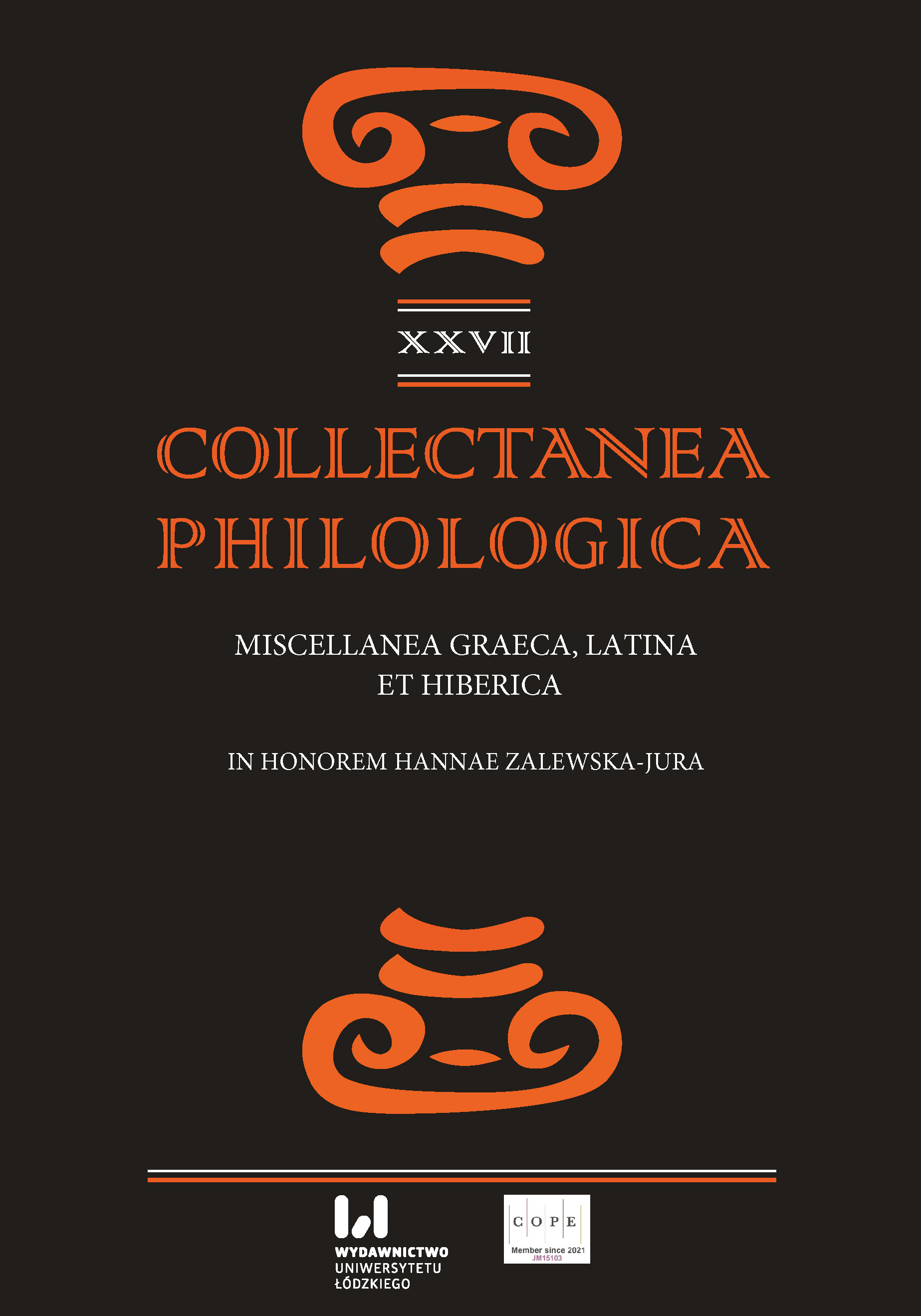
The article raises the issue of the proper understanding of the concept of mikropsychia in Aristotle’s works. In modern Polish translations, the term is translated as “small-mindedness” or “exaggerated modesty”; according to one of the translators, it is the equivalent of Christian “humility”.In the first part of the article, it is shown that in the writings of Aristotle and his contemporary authors, mikropsychia is a serious moral vice, the source of which is self-ignorance and the resulting low self-esteem. It is often associated with cowardice, envy, greed and selfishness. Understood in this way, this character trait has nothing to do with modesty, which we consider a virtue. The second part of the article discusses various ways of understanding modesty and its place in Aristotle’s ethics. The interrelationship between modesty, pride, moderation and proper self-esteem is also shown.
More...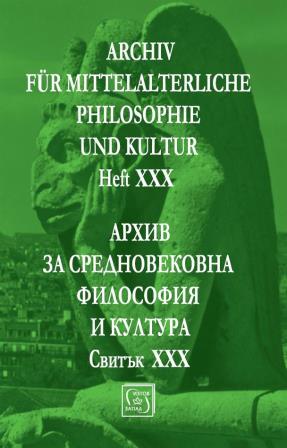
Thomas Aquinas sets out in his famous Summa Theologiae to identify helpful ways of speaking of the Incarnation, by which one ascribes both divine properties and human properties to one person, Jesus of Nazareth. In doing so he makes extensive use of the eastern Christian teaching of John of Damascus, whose work The Orthodox Faith was translated into Latin. How do these two influential Christian thinkers make clear what they believe about God and human nature as each are manifest in the Incarnation, and why do they think it matters concretely that God became human?
More...
The current text discusses the views of Thomas Aquinas and Maimonides on the positive attributes concerning God in the light of Aquinas’ explicit criticism against the via negativa in Summa Theologiae. In order to do this, first, we discuss some Aquinas own views concerning positive attribution about God. Famously the Dominican author calls for a knowledge of the substance of God based on analogy between the Creator and the creation. Aquinas holds that God can be known as the first principle of all being and thus names attribute something about God. Secondly, we will mention the objections against Maimonides and how the negative theology to is its extreme, rules out any knowledge about God. Lastly, we will take a look at Maimonides’ own views. Seemingly, Thomas misunderstands Maimonides’ position. Even though positive attribution is impossible about the substance of God itself, nevertheless, positive attributes refer to God’s actions towards creation. However, since God is completely transcendent, knowledge about his substance is strictly speaking impossible.
More...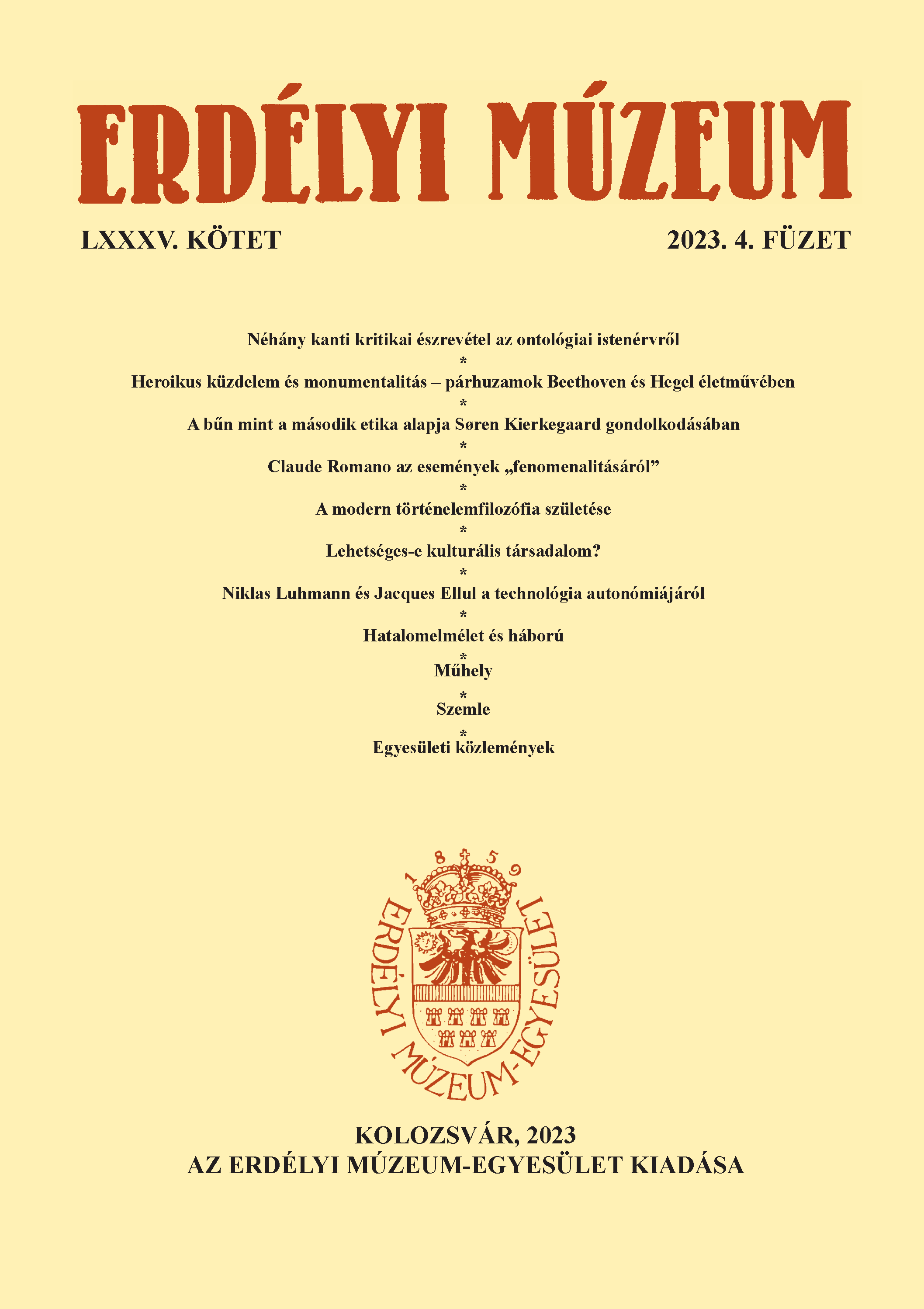
If we want to grasp the concept of sin in Søren Kierkegaard’s oeuvre, we must first turn to the famous original sin analysis of the concept of anxiety, in which the psychological investigation of Vigilius Haufniensis attempts to describe the origin of the concept of sin, as it first comes into existence in man. However, the pseudonymous author does not reassure his reader on this issue, as we can learn from the introduction of the work that if we are to research the real possibility of sin, the best and perhaps the only method is the path of psychology. But in the sense that Haufniensis calls it the second philosophy and related to it the second ethics, which is meant to capture the reality of sin, this method is far from a satisfactory way to do so. For psychology, sin becomes evident only in its origin, i.e. if, in the mediation of anxiety, it reveals the contradiction of existence, which has freedom at its centre; however, it is unable to posit sin in the contradiction between the aesthetic and the ethical, which would open the way to the religious ideal. According to Haufniensis, psychology cannot be the method of the second ethics, this “new science”, but here we can only turn to dogmatics. The aim of my present paper is therefore to show how the concept of sin appears in Kierkegaard’s thinking as the main characteristic of this difference, but in close connection with this I would also like to point out the close relationship that exists between Kierkegaard’s specific theology of sin and Schelling’s Philosophical Inquiries into the Essence of Human Freedom.
More...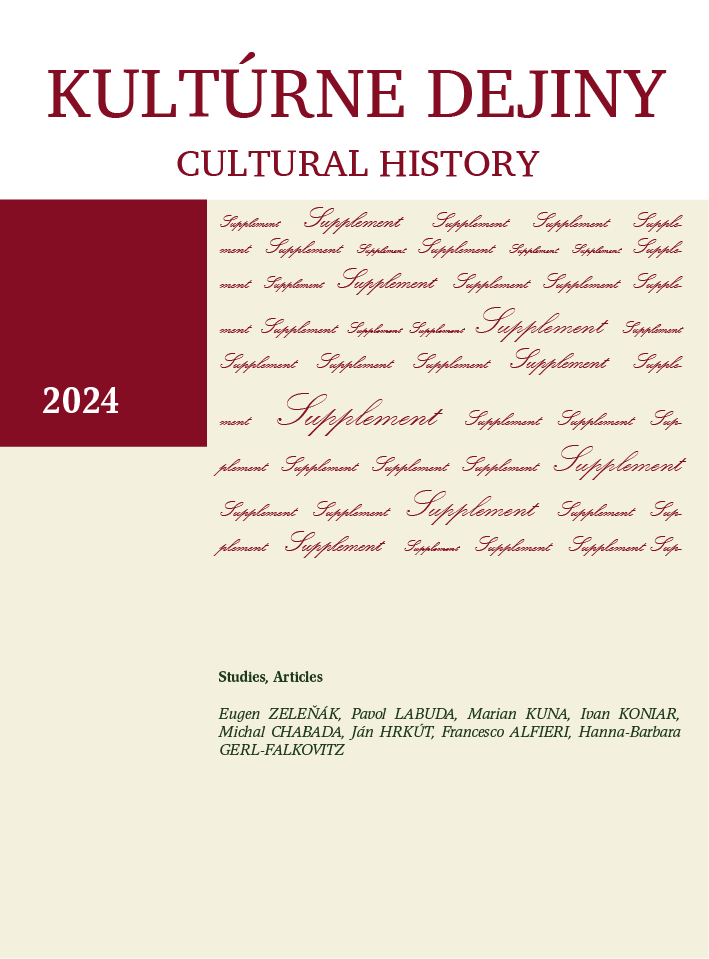
The term of ,Christian philosophy‘ is less traditional than often assumed. It was not until the 1930s that the term became the subject of a significant and intense debate. This controversy elicited a range of responses, including outright rejection of the term as a contradictio in adiecto (a contradiction in terms), alongside more moderate interpretations that sought to rehabilitate and redefine its meaning. This study aims to trace the historical development of this debate and to engage with a contemporary interpretation offered by Josef Seifert, characterized as a cataphatic approach to the concept. The primary objective is to critically analyze Seifert's position while revisiting the broader discourse on Christian philosophy, ultimately striving for a more coherent and accessible definition of the term.
More...
The article discusses the philosophical presuppositions of the history of philosophy as a philosophical discipline on the example of the problem of interpreting mutually incoherent claims of a philosopher. The conclusion is that the constitution of these presuppositions is onto-theo-logical. The importance of the criteria of coherence and comprehensiveness for historic philosophical interpretation is analyzed. Finally, the idea of the possibility of a postmetaphysical history of philosophy as a philosophical discipline is exposed, viewed as the accumulation of understandings of various paths - followed and not followed alike - found in past philosophers.
More...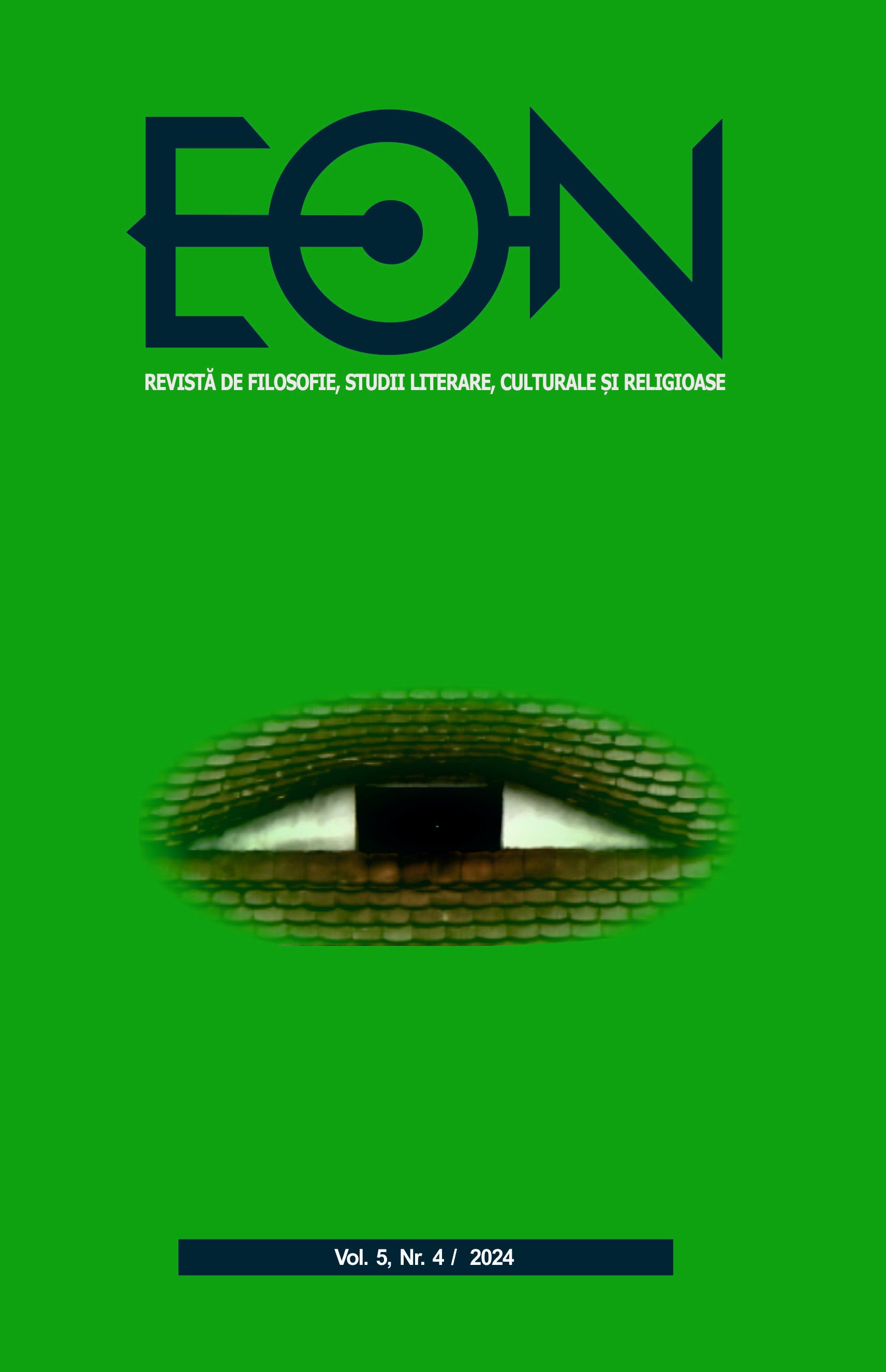
This study explores the acceptances of the concept of apocatastasis in five of the most influential philosophical and religious traditions of antiquity: Pythagoreanism, Stoicism, Platonism, Gnosticism and Zoroastrianism. Apocatastasis, defined as 'restoration' or 'return to the original state', was interpreted differently in each of these systems of thought, reflecting distinct views on the nature of the cosmos, time and human destiny. In Pythagoreanism and Stoicism, apocatastasis is closely linked to cosmological cyclicity, implying the periodic renewal of the universe. Platonism emphasizes the restoration of the harmony of the soul and the cosmic order, seen as a return to the perfection of the world's ideas. In Gnosticism, apocatastasis takes on an eschatological and soteriological dimension, referring to the liberation of the soul from the material world and the return to the divine origin. Zoroastrianism offers a dualistic interpretation, where the final restoration of the world is associated with the triumph of good over evil and the restoration of cosmic order. Through a comparative analysis of these traditions, the study highlights the diversity of the meanings of apocatastasis and its relevance in understanding different visions of universal restoration and salvation.
More...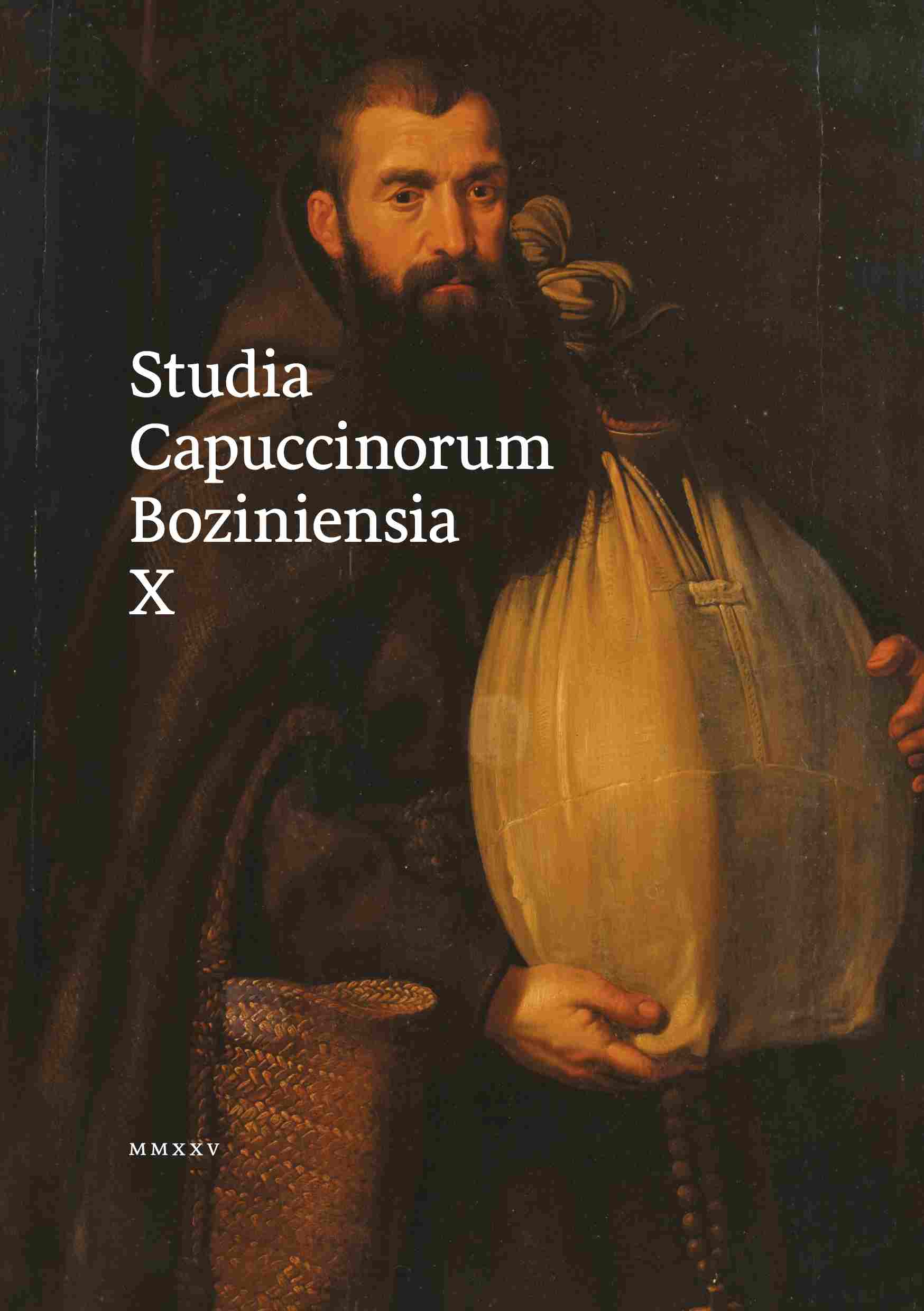
The article deals with the scholastic theological problem of whether God predestines before or after the knowledge of merit, ante or post praevisa merita. The more general question is whether there is any cause at all on the part of the predestinated person for predestination, or at least any reason for salvation or reprobation. The text focuses on how the Capuchin theologians of the 16th and 17th centuries, the period of the so-called Second Scholasticism, dealt with the above-mentioned problem. The starting point for these thinkers was St. Bonaventure of Bagnoregio’s (1221-1274) Commentary on the Sentences of Peter of Lombardy. In his interpretation, Pedro Trigoso (1533-1593) brings Bonaventura closer to St. Thomas Aquinas on this issue. According to the Angelic Teacher, there is no reason for predestination on the part of the predestinated. Bonaventure, on the other hand, clearly speaks of a reason, although he does not wish to identify it precisely. He merely says that it is a certain congruence (adequacy) on the part of the predestinated. According to Gaudentius of Brescia (1612-1672), who took the opposite position to Trigoso, this congruent reason is the good action of man, and this is how he understands Bonaventure’s concept. The study presents and analyses the arguments of the aforementioned authors. It also shows how some of the difficulties mentioned by the two Capuchins are solved by the Jesuit conception based on the so-called middle knowledge in God.
More...